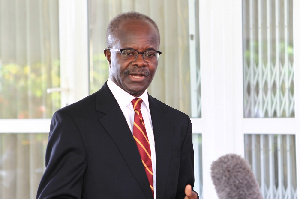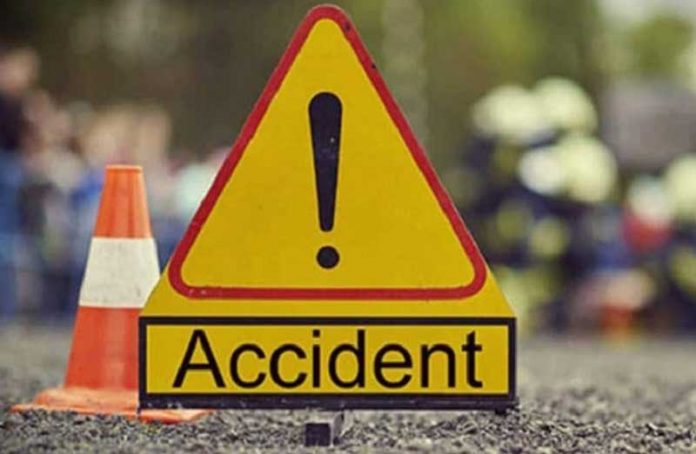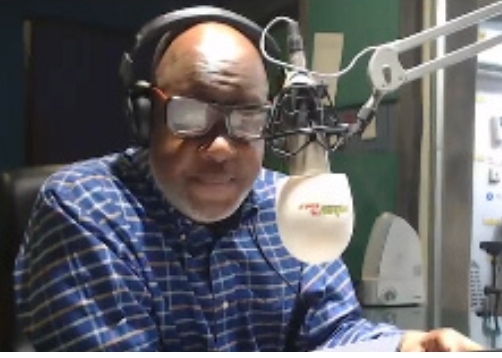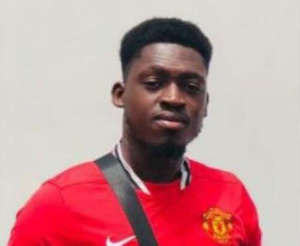Kwame Nkrumah died as co-President of Guinea – Kwesi Pratt Jnr
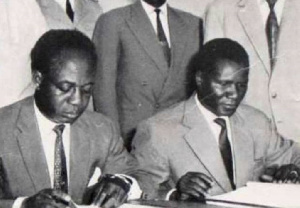
• Kwesi Pratt Jnr says Osagyefo Dr Kwame Nkrumah was also the co-President of Guinea
• He indicated that, Nkrumah had a vision of bringing African states together so he formed one country between Ghana, Guinea and Mali
• He made these comments on Alhaji and Alhaji
Kwesi Pratt Jnr says Ghana’s first President, Osagyefo Dr Kwame Nkrumah prior to his overthrow in 1966 and subsequently, his sadden demise in 1972, was also a co-President to his Guinean colleague and friend, Ahmed Sékou Touré.
According to him, Nkrumah was properly elected as the co-President of Guinea by the Guinean Parliament.
Pratt indicated that, Osagyefo Dr Kwame Nkrumah, had a vision of establishing a union of African states, therefore, he first brought Ghana, Guinea and Mali together.
He stated that, he [Nkrumah] later brought in Congo after he signed an agreement with the then Congolese President, Patrice Hemery Lumumba.
Kwesi Pratt Jnr explained on Alhaji and Alhaji that, “Before the February 24, 1966 coup, Guinea, Ghana and Mali were one country. In fact, under the auspices of Modibo Keita, Sékou Touré and Kwame Nkrumah had established Ghana, Guinea, Mali union.
“Just before Nkrumah was overthrown, he [Nkrumah] had signed an agreement with Patrice Lumumba of the Congo to extend the union to have Ghana, Guinea, Mali, Congo union as the beginning of the establishment of the union of African states.”
He continued: “So, when we as Ghanaians discuss the development in Congo, we are talking about our own brothers and sisters; we’re talking about a country in which Kwame Nkrumah was the President. A lot of people don’t just also know that Kwame Nkrumah was not just President of Ghana; that after the 1966 coup, he was properly elected by the Guinean Parliament as co-President of Guinea.
“So, he died as the President of Guinea. So, I’m not talking about some people who were far removed from us and so on, I’m completely talking about our own African brothers and sisters with whom we try to forge a union of African states.”
About the 1966 coup
President Kwame Nkrumah was on his way to Hanoi with peace proposals for ending the war in Vietnam when the 24 February 1966 coup in Ghana overthrew his government. The constitution was suspended and a National Liberation Council (NLC) was established. It consisted of six members of the army and six policemen, with General J.A. Ankrah as chairman, and Police Commissioner J.W.K. Harlley as deputy chairman.
Nkrumah had almost reached Peking, the furthest point of his journey, when the coup took place. He was informed of the news by the Chinese ambassador in Accra who had gone ahead to Peking to greet Nkrumah and to escort him during his stay in China.
Nkrumah’s first reaction was to return immediately to Accra. If the VCIO of Ghana Airways had not been left behind in Rangoon, he would have embarked at once. “I knew that to avoid unnecessary bloodshed I would have to be back in Ghana within 24 hours, and this was clearly impossible. I decided, therefore, to make an immediate statement to the Ghanaian people, and to fight back on African soil just as soon as my hosts could make the necessary travel arrangements.”
Co-President of Guinea
It was no surprise that Nkrumah chose to accept the invitation from Guinea. He would also have been welcome in Cairo because of his friendship with President Nasser. It was there that Nkrumah’s Egyptian wife, Madame Fathia (Rizk) and the three children, Gamal, Samia and Sekou, had taken refuge.
But Guinea under the government of President Sékou Touré and the Guinean Democratic Party (PDG) had become a stronghold of the African Revolution. Sekou Toure and Nkrumah shared the same ideas on liberation, social justice and the unification of Africa.
In 1958, when Guinea made history by becoming the only state among France’s African colonies to give a decisive Non to General de Gaulle’s referendum about joining the French Community, Nkrumah’s government made £10 million available to the newly independent Guinean government to help it surmount some of its most pressing economic problems. Sekou Toure and the people of Guinea never forgot this generosity, and Nkrumah always received a tumultuous welcome whenever he visited the country.
Then in 1961, Ghana and Guinea formed a Union, later extended to include Mali, which was intended to form a nucleus around which the African unification process could develop. A further factor which influenced Nkrumah’s decision to accept Sékou Touré’s invitation was the geographical consideration. Guinea was only some three hundred miles from Ghana. For Nkrumah was determined to return to Ghana to carry on the African revolutionary struggle, a resolve which never faltered during the whole of the time—more than five years—that he was destined to spend in Guinea.
The first I knew of Nkrumah’s arrival in Conakry was when I saw an Evening Standard placard on a newsstand in Piccadilly, London: “Nkrumah arrives in Guinea to a 21-gun salute”. It was a relief to know that he was safely on African soil again and among friends who shared his political ideals.
The aircraft carrying Nkrumah and his entourage had touched down briefly in Yugoslavia and Algeria, finally reaching Conakry during the afternoon of 2nd March. The following day, at a mass rally, Sékou Touré proclaimed Nkrumah Head of State of Guinea. “The Ghanaian traitors have been mistaken in thinking that Nkrumah is simply a Ghanaian,” he declared, “he is a universal man.” It was an unprecedented expression of Pan Africanism.
At the time, Nkrumah did not realize what Sékou Touré, speaking in French, had said. He thought the cheering of the crowd was in response to the Guinean president’s welcome to his distinguished guest. When later he learned the truth he was very moved but agreed only to become co-president of Guinea.
Kwame Nkrumah was in Guinea until August 1971 when ill health compelled him to seek medical treatment in Romania. He died in Bucharest on 27 April 1972.
Source: www.ghanaweb.com


